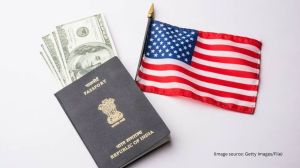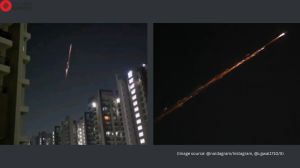A Day in Karachi
And the tumultuous tale of a madding metropolis unfolds
Karachi is the hand that feeds Pakistan and certainly its estimated 18 million multi-ethnic Pakistanis,besides a few million illegal immigrants from Afghanistan,Bangladesh,Myanmar,Iran,Sri Lanka and you name it. The countrys premium port city,economic and industrial hub,Karachis lure is seamless,attracting up to 300,000 new economic immigrants every year. Today the city has grown over 30 times its size,the population and,indeed troubles,since 1947,when huge waves of Indian Muslims arrived here at Partition to stake a claim in the economy of the country created with a promise held out to Indian Muslims of better opportunities. But it is no more the capital of Jinnahs Pakistan just as Pakistan is no more the country its founding father had in mind.
It is in this context that Instant City by Steve Inskeep,a National Public Radio morning show co-host based in the US,tries to come to grips with this madding metropolis. The book is a smart collection of recollections of his several trips to Karachi on various assignments over the years,and includes more than flash interviews with the whos who of the city and the ordinary folks. His strength lies in offering informed analyses based on academic theoretical framework that seeks to define what an instant city is and how many of them are there in the world,of which Karachi is but one.
Original in its approach in trying to roll in memories of events past and upheavals witnessed over the years,the book is a rollercoaster ride of one day in Karachi in which the author unfolds his many discoveries,claiming to be no expert on the subject but an enthusiast who could not be left untouched by Karachi,its cosmopolitan environment and all that tries to dog it. It is also a tribute to Karachis resilience,its ability to bounce back to its dynamic character after being repeatedly struck by tragedy.
But Instant City is very different from Suketu Mehtas similar inquiry of Mumbai in Maximum City. Unlike Mehtas fantastic narratives of interaction with the most dreaded mafias of Mumbais underworld,Inskeepss is just an outsiders effort to get to know a city a bit better.
The book is roughly bifurcated into four interesting parts,starting with the terrorist bombing of a Shia mourning procession on Karachis M.A. Jinnah,old Bunder (port) Road,in December 2009,and the arson that followed it. He delves deep into the tragedy which left scores dead and injured,and destroyed a historical enclave of the city,which was possibly set on fire not by Shia mourners in retaliation but by a bunch of hired goons acting at the behest of land grabbers. Like so many other tragedies in Karachi,the whole truth behind this event may never be found out. From here on,the second portion of the book proceeds to document and put in perspective Karachis heritage buildings,which mostly date to the post-1850s colonial period,when Parsi merchants and Gujarati businessmen started arriving here from Bombay and Kathiawar,and their interaction or lack of it with the rising urban Sindhi Hindu elite,the native Baloch Muslim tribes and so on. These communities,under the British rule,laid the foundations of post-World War II Karachi.
Again,the narrative flows conveniently into the next part,focusing on modern-day Karachi,its fast-paced development from an 18th-century fishing village to a British cantonment and port city to Karachis coming-of-age. This is the story of Karachis impressive urban sprawl,its wide boulevards,underpasses,flyovers,elite neighbourhoods,proliferating shopping malls studded with designer ware,a rising and aware middle class,alongside the many slums from which come the white-collar young executives,the blue-collar labour as well as the thugs and hit men. The concluding part of the book entails research and analyses of comparative urban studies,and suggestions on how Karachi too can grow with grace.
Not too overly engrossed in Karachis ethnic or communal politics and the crime scene,it is indeed a balanced account of a city Inskeep has grown to feel for. This is certainly not the regular fare: a gora trying to tell Pakistanis what is wrong with them.
Photos




- 01
- 02
- 03
- 04
- 05



























